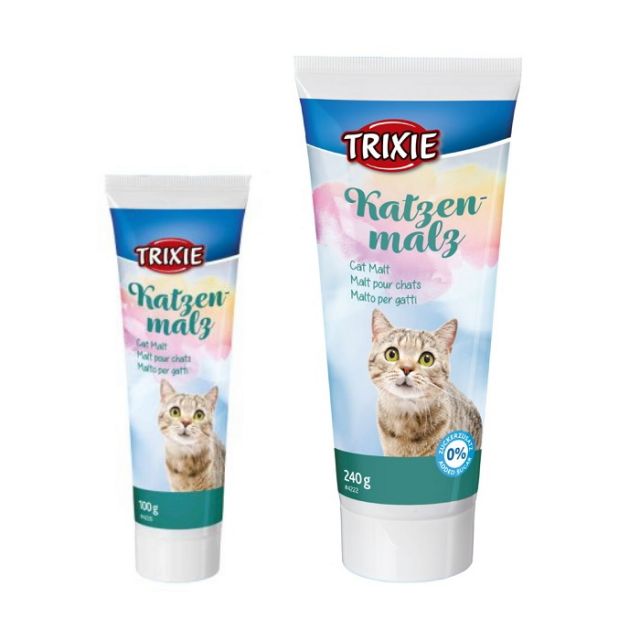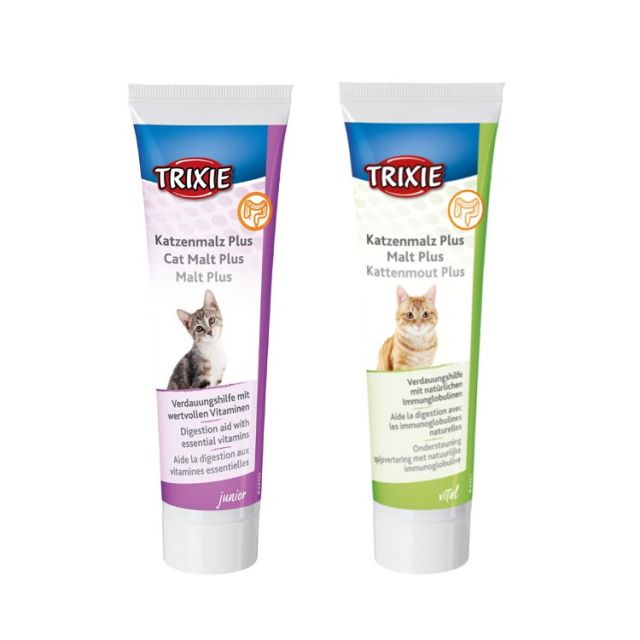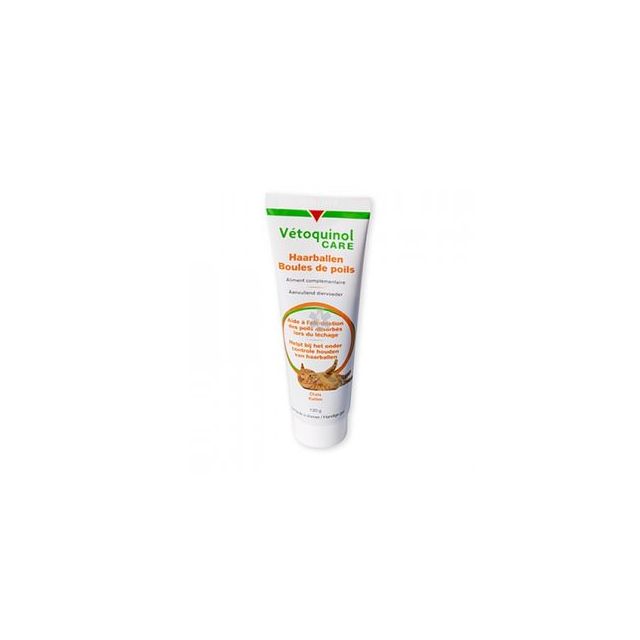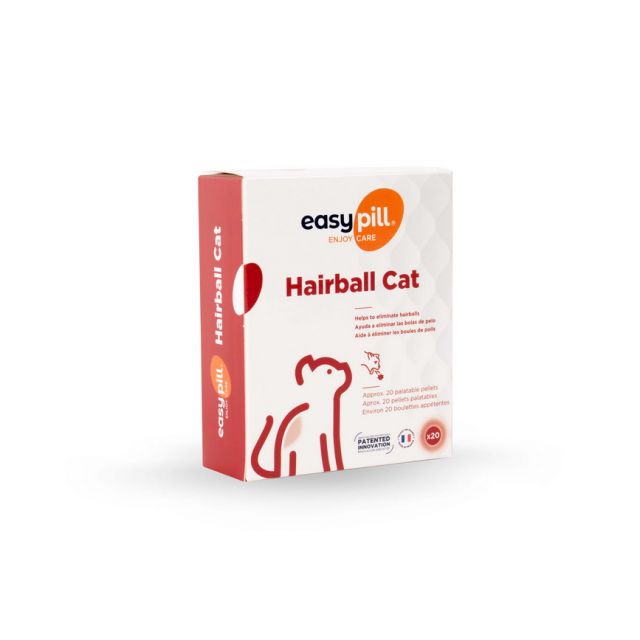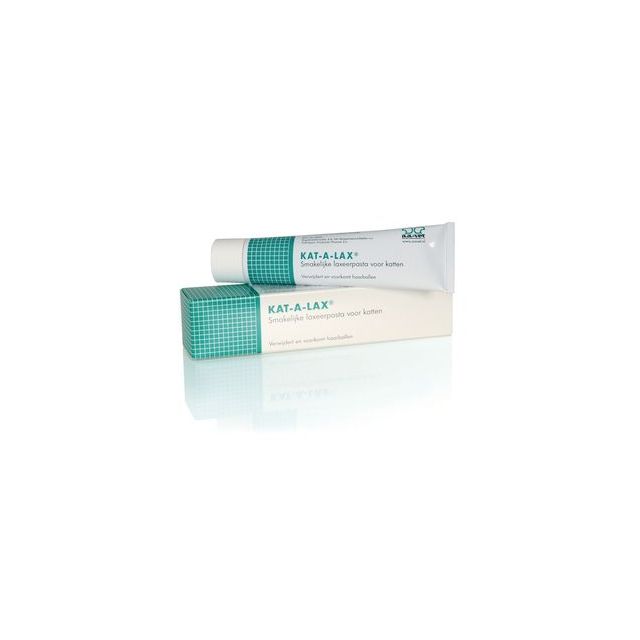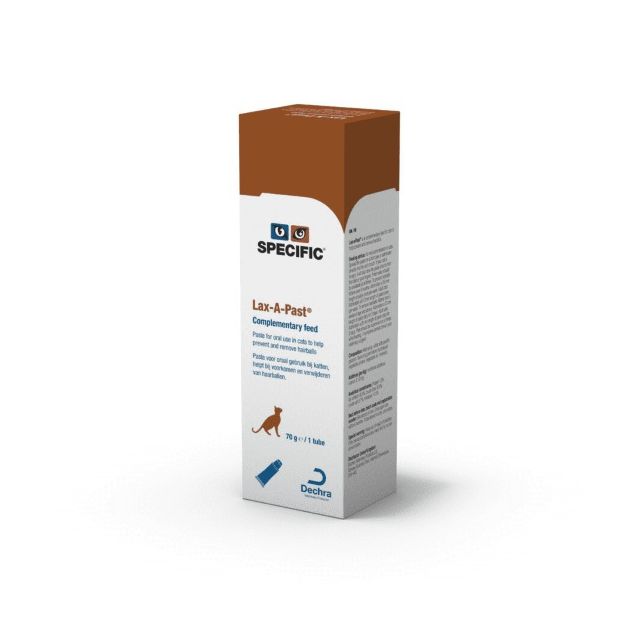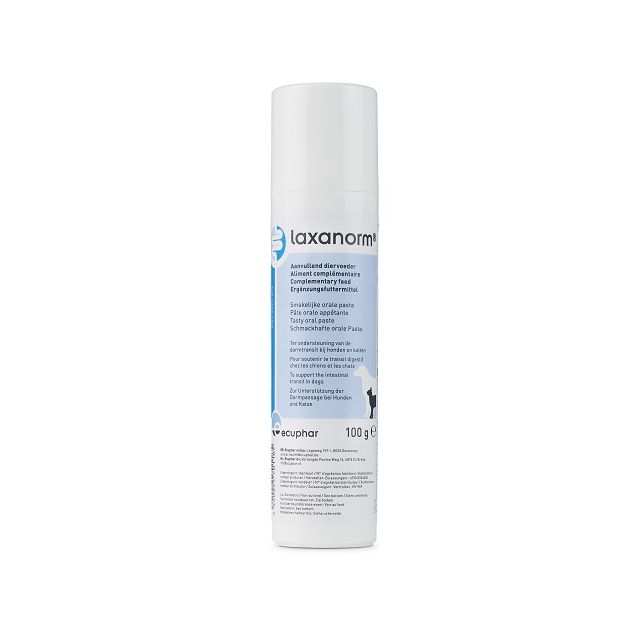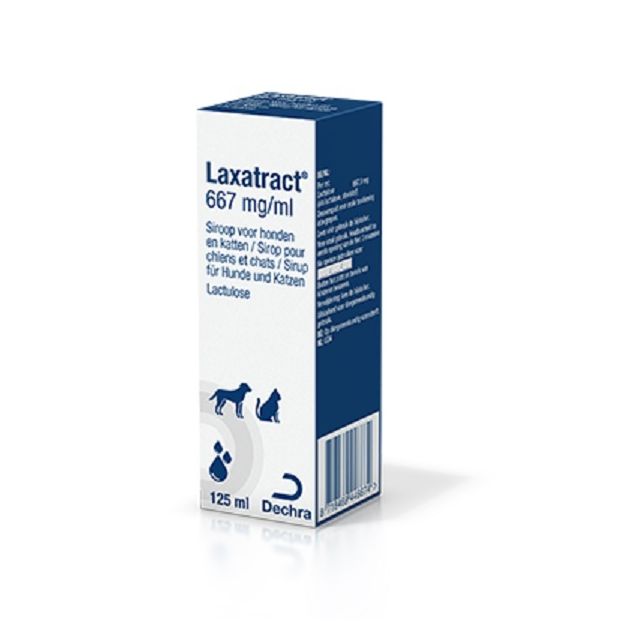Hairballs in Cats: Symptoms, Prevention, and Treatment
As a proud cat owner, you have probably encountered a hairball from your furry friend. Although hairballs in cats are quite common, they can cause discomfort and health issues. Pharmacy4pets offers various anti-hairball pastes, so you are sure to find one that your cat will like.
How do hairballs form?
Cats are naturally very clean and spend a lot of time grooming their coat. The rough tongue of the cat works like a brush that hairs stick to. Your cat swallows these hairs, which should ideally pass out with the feces. However, if your cat swallows a lot of hair, a hairball can form. Hairballs can occur, for instance, if your cat excessively licks herself due to itchiness or stress, or if she is shedding. Long-haired cats are more prone to hairballs than their short-haired counterparts.
Symptoms of hairballs
Cats display various symptoms when they are suffering from hairballs. We have listed the main symptoms for you!
- Gagging and vomiting: when a cat has a hairball in the stomach, she may try to get rid of it by vomiting. It does not always work, and then it remains a gag.
- Hair in the feces: a few hairs in the feces is normal. However, if you see a lot of hairs, it indicates hairballs. There can even be a string of feces with hair hanging from your cat's anus.
- Wanting to eat grass: if your cat is suffering from a stomach upset due to a hairball, she may have an increased urge to eat grass or plants.
- Reduced appetite
- Constipation: sometimes a hairball (partially) blocks the intestine, and you notice that your cat has difficulty defecating, this is also called constipation
- Abdominal pain
- General illness: if a hairball causes a blockage in your cat's stomach or intestines, your cat will be very sick. She may vomit, be listless, have no feces, pain, and possibly fever. A blockage of the stomach or intestines is life-threatening!
The treatment of hairballs in cats
There are different ways to treat hairballs in cats, of course, the type of treatment preferred varies from cat to cat.
Anti-hairball paste
Fortunately, products are available to help your cat pass hairballs.
Anti-hairball paste is a commonly used option. Hairball pastes contain ingredients that help loosen and pass the hairballs through the gastrointestinal tract so they can be expelled naturally. Pharmacy4pets offers different anti-hairball pastes like Kat-a-lax and Vetoquinol Care Hairballs.
If your cat does not like pasta, you can also mix (tasteless) psyllium fiber, called Iso-Gel, into their food. These fibers turn into a type of gel in the stomach that wraps around the hair and easily slides through the intestines.
If your cat suffers from hairballs, give them hairball paste or Iso-Gel once or twice daily for several days.
Treatment of Constipation or Obstruction
For mild constipation (your cat can still defecate, but it's somewhat difficult or there's a lot of hair in the feces), an anti-hairball paste or Iso-Gel is usually sufficient. However, if a hairball gets stuck in the gastrointestinal tract and blocks the passage, your cat will become seriously ill. Symptoms include vomiting, constipation, abdominal pain, and general discomfort in the cat. If these symptoms occur, it's important to consult a veterinarian immediately. Sometimes, surgical intervention is necessary if a hairball causes a blockage.
Preventing Hairballs in Cats
Although it's difficult to completely prevent hairballs, you can take a number of measures to reduce the risk:
- Brushing: regular brushing helps remove loose hair before your cat ingests it. If your long-haired cat dislikes being brushed, you could consider getting them shaved.
- Be alert to excessive grooming and itching: if you notice your cat grooming more than usual or scratching a lot, realize that your cat probably has an itch and visit a veterinarian.
- Flea prevention: timely preventive treatment against fleas and other parasites helps prevent your cat from getting itchy and excessive hair loss.
- Diet: special cat food that is high in fiber can help promote a healthy digestive system and prevent hairballs.
- Hydration: ensure your cat drinks enough water. Good hydration can help smoothly pass hairballs and prevent blockages.
- Exercise: encourage movement to stimulate bowel movements. Play with your cat to combat boredom. Cats who are bored often groom themselves excessively.
- Anti-hairball paste: use anti-hairball paste or Iso-Gel as a supplement to your cat's diet. A guideline is to give the paste or fibers once or twice a week, but primarily follow the directions from the veterinarian or the instructions on the packaging for correct use.
Hairballs are a common problem in cats, but luckily there are various ways to treat and prevent them. Be mindful of hairball symptoms, such as excessive licking, retching and vomiting, constipation, and decreased appetite. Consult a veterinarian if you suspect your cat has a blockage due to hairballs. Use anti-hairball paste as a tool in the removal of hairballs, and take preventive measures like regular brushing and high-fiber food to reduce the risk of hairballs. By taking care of your cat's health, you can provide them with a comfortable and happy life.
If you have a question about our products or about hairballs in your cat, please contact us.



